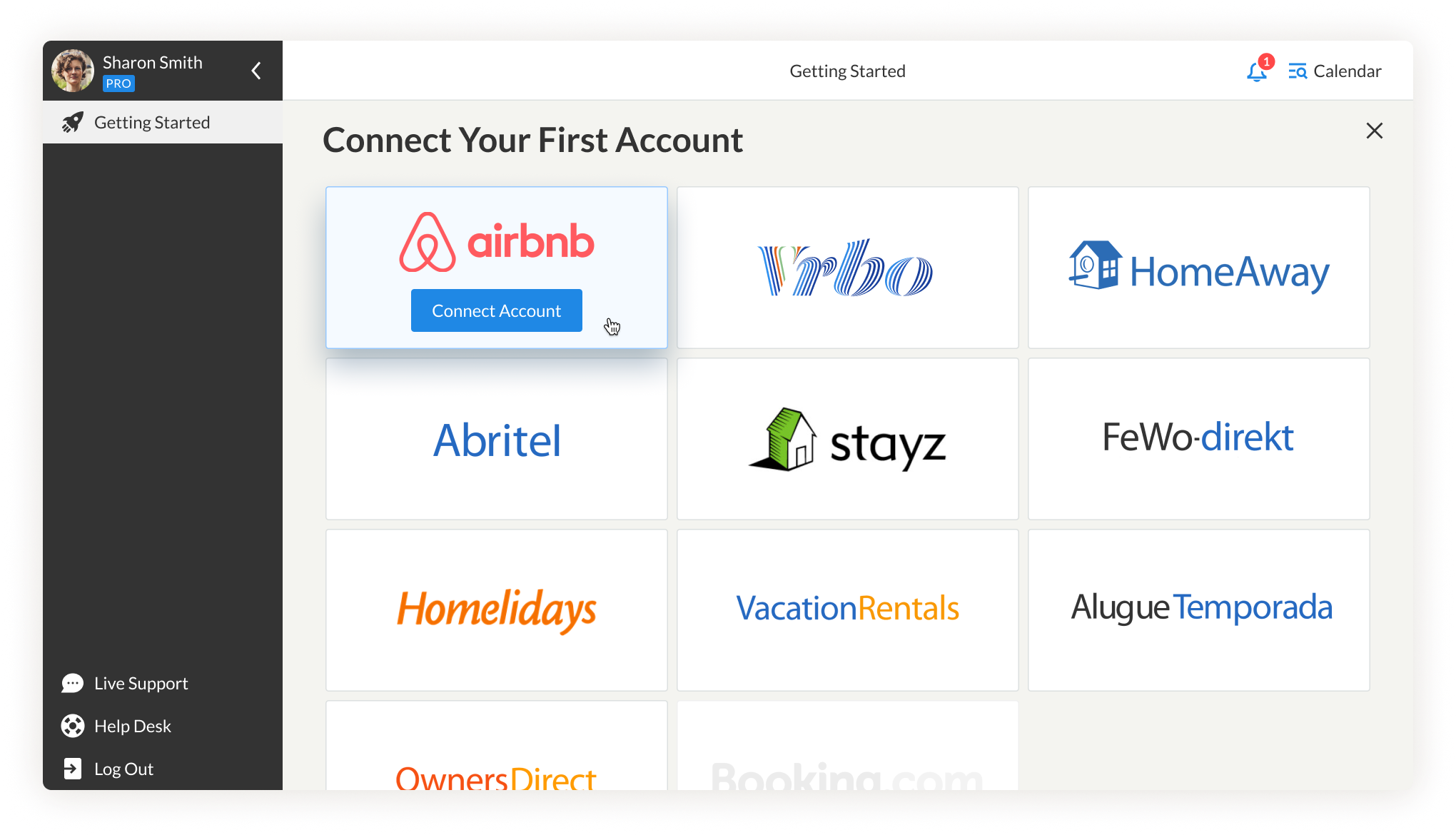How to make a vacation rental pay for itself: 4 steps in your roadmap to profitability

Getting your vacation rental property to pay for itself is possible if you follow this roadmap to profitability.
Property investment enjoys historical stability, especially during times of economic uncertainty and high inflation. Moreover, its ability to offer solid returns well above other investment options adds to its low-risk, high-reward appeal.
Low risk, high reward appeal of an investment property
Millennials are the most prominent property investors right now, making up 43% of home buyers – the most of any generation – and an increase from 37% last year.
Generation X spent more money than any other age group, buying the most expensive homes at a median price of $320,000. This is according to the latest NAR Report for 2022/23, which shows Millennial Home buyers continue to rise.
Industry data shows that fixed costs and debt are significant barriers for many when attempting to buy a home.

Save to determine your investment future
Generation X and younger boomers delayed becoming homeowners for five years due to debt, the longest of all age groups. Younger millennials had the highest share of student debt at 45%, with a median amount of $28,000. Twenty-seven percent of younger millennials cited that saving for a down payment was the most challenging step in the home-buying process, compared to just 1% for older boomers.
Nearly one in three – 29% – of younger millennials received down payment help in the form of a gift or loan from a friend or relative, and 24% lived with friends or family, directly saving on rental costs.
How to buy a vacation rental home that pays for itself?
Ultimately, short-term rental investing differs somewhat from real estate investing.
A traditional real estate investment offers a more stable, consistent income. On the other hand, a short-term rental investment provides higher profit margins and more room for growth and scaling if you use your investment equity to add more properties.
With good planning and relevant market research, anyone can reap the benefits of buying a vacation rental property.
Getting started with your first investment rental property is easier than you think. Vacation homes are an excellent investment to generate rental income. Start with these investment steps to start making money through the short-term rental market.
1. The location you choose matters
Whether you purchase your first or second home, have clearly defined property management goals. That includes buying in an area suited to short-term vacation rentals.
You will need to decide if you want to buy a property in a city, town, or the countryside.
Then you can start to look at specific areas that have potential.
Remember that while you should consider a property’s cost, the property still needs to be in a reasonably safe and attractive area to draw in guests.
Use real estate investing tools to find the ideal vacation rental property.
High-end real estate investing tools means you can avoid the need to do manual market research.
A dedicated tool will allow you to identify the best places to buy a vacation home, backed by data, to ensure you make the best vacation rental investment.
Some of the top-rated tools on the market are:
AirDNA
AirDNA identifies short-term rental trends and provides stats on over 10 million vacation homes across 80,000 cities worldwide. In addition, it offers data on rental demand, annual revenue, and insights into comparable vacation rental properties in the area.
Mashvisor
Mashvisor simplifies the rental research process, shortening it from several weeks to about 15 minutes. View the average occupancy rate, potential ROI, and cash-on-cash return for properties. It also offers a heat map showing areas that match your input requirements.
AlltheRooms
AllTheRooms is one of the world’s leading suppliers of data and analytics relating to the short-term rental market. As a result, you can obtain practical insight into your property’s potential and current performance, market trends, and emerging vacation rental hotspots.

2. Run the Income and Expenses Figures Correctly
As a vacation rental owner, you need to establish a good profit margin for your vacation rentals to reduce the period you’ll need to pay off your mortgage.
Things like HOA dues, utility bills, snow ploughing, maintenance and property taxes can be additional expenses that need to be paid.
How to Calculate Cash Flow
Before investing in vacation rental properties, you need to understand how cash flow is calculated.
The formula is relatively simple and merely requires an accurate representation of income and expenses.
Here is what you need to determine:
Gross income: This is the total sum of rental payments you receive from your tenants + any other source of extra income from the investment property.
Operating expenses: These are the costs of operating a vacation rental property. We discuss these expenses in more detail below.
Net operating income: The NOI results from subtracting expenses from income. For example, this is the profit you generate from renting a vacation home without considering capital expenditure.
To determine the cash flow, you subtract capital expenditure from the net operating income. Capital expenditures are the one-time expenses that the real estate investor incurs at the start of the venture.
Here are some critical income and expenses considerations to include when working out your budget:
- Management fees
- Property maintenance
- Repairs, cleaning, and year-round maintenance
- Insurance and taxes
- Accounting fees
- Marketing and paid advertising
- Appliances and supplies
- Furniture
- Vacancy periods
Research and Develop an Agile Pricing Strategy
Your pricing strategy can hugely impact your vacation rental’s booking calendar and the overall profitability of your home.
It would help if you offered more value than your competitors to win over new guests. Therefore, conduct a competitor analysis before investing in your vacation rental property.
Research and analyze listings in your area to see how they compare to your rental in terms of:
- Property size
- Location
- Amenities
- Reviews
- Cancellation policies.
Reference all the advantages and unique features of your vacation rental to attract future guests.
Most importantly, you want to avoid vacancies and minimum stays. But don’t run the risk of applying aggressive minimum stay rules. Industry data shows that post-pandemic travelers are looking for flexibility, and potential guests could overlook your listing for one that seems easier to book.
Pricing your vacation home correctly during the various seasons is one of the quickest paths to higher overall performance. It would be best if you tried to avoid minimum nightly rates. This can work against you, especially during the low season.
4. Market Your Home Strategically
As a host, you might wonder where to list your investment property for the best results.
The rule of thumb is to research the top vacation rental sites to maximize audience reach and find the perfect rental, and then start using the ones that suit your needs best to start making money.
For instance, Airbnb and Vrbo are two of the top trusted vacation rental sites.
Airbnb has the largest community of vacation rental hosts and offers over 6 million listings to guests in more than 100 000 cities and towns across 220 regions and countries worldwide. That’s a lot of options for guests to choose from. It is also one of the fastest-growing vacation home rental websites. Airbnb has the best brand recognition among hosts and guests in the short-term rental market.
Although Vrbo has a lot in common with Airbnb, there are some major differences. While you can list different properties on Airbnb (including shared rooms, cabins, beach houses, and treehouses), Vrbo only allows hosts to list private spaces. If you have a spare room to rent, keep in mind that you can’t advertise it on Vrbo.
Other crucial aspects to consider when it comes to marketing your vacation rental include:
- SEO (search engine optimization). Using the right keywords and the right signals to ensure your home is well represented on search engines.
- PPC (pay-per-click) ads. These sponsored ads appear at the top of search results, targeted to appear when your guests search for precise keywords.
- Display ads. You know those banner ads that follow you around the internet? You can opt for those too.
- Facebook ads. When we know a guest is looking for homes in your area, a pic of your beautiful property could end up right in their newsfeed.
- Organic social have the potential for your unique homes to be featured across social media profiles, reaching hundreds of thousands of interested travelers.

No matter which vacation rental booking sites you choose, don’t let managing multiple listings eat up all your time.
To maintain full control over your business, consider using vacation rental software. A solution such as iGMS has integration with Airbnb, Booking.com, and Vrbo and allows you to manage all the major aspects of your business hassle-free.
With iGMS, you can:
- Synchronize your bookings on different OTAs and manage them via a single dashboard
- Automate guest communication and get all your messages displayed within a unified inbox
- Automate reviews using functionality that allows you to create review templates and post reviews directly from the software;
- Create essential business reports using a reporting feature
- Effortlessly manage your security deposit collections, claims, and refunds
- Create a professional direct booking website in minutes
- Automate cleanings, set tasks, and manage your team efficiently
- Process payments securely via Stripe integration
- Manage direct bookings using the iGMS direct booking management toolkit.







![Your Monthly iGMS Roundup [February 2020]](/content/images/size/w600/wordpress/2020/02/igms-roundup-feb-2020-cover.png)

